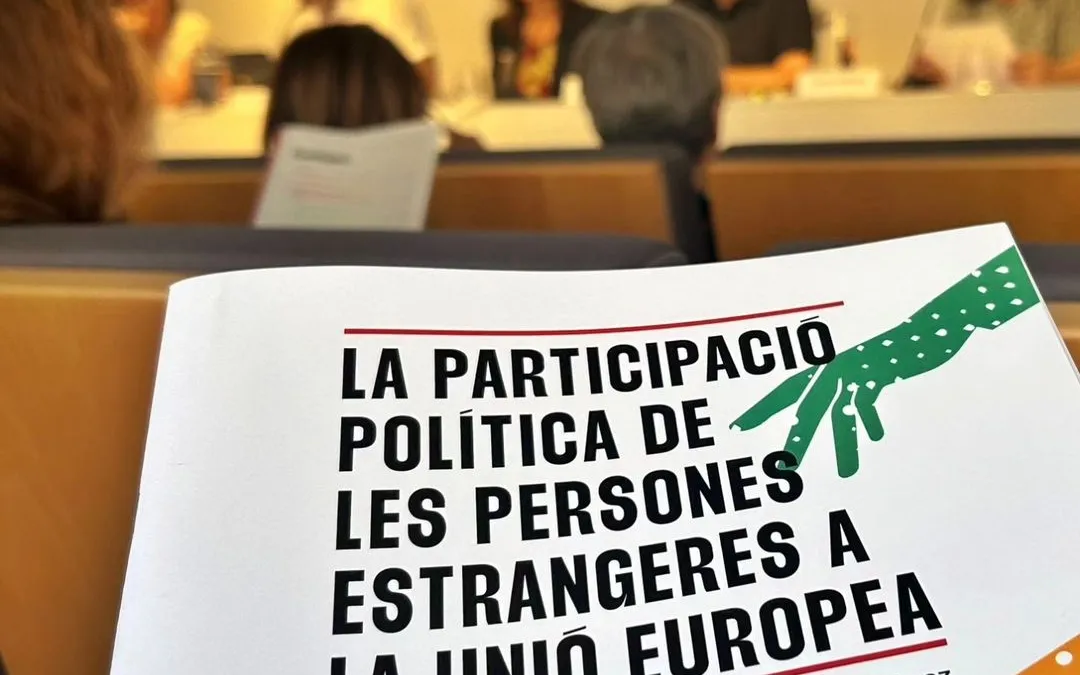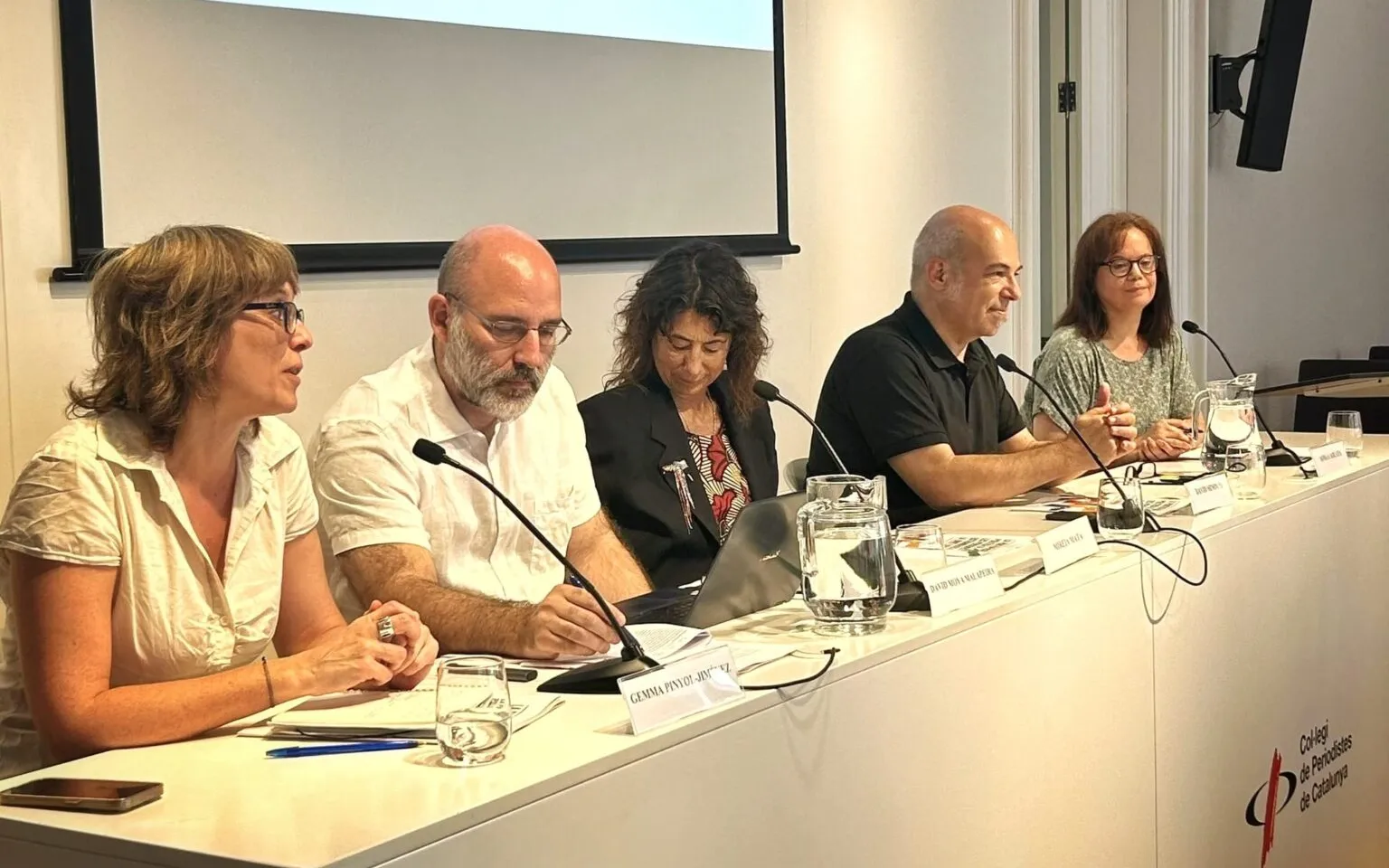A study proposes eliminating the reciprocity requirement to expand the voting rights of foreign nationals
The report by the International Escarré Center for Ethnic Minorities and Nations indicates that more than half of the countries in the European Union accept municipal voting rights for foreign nationals.
Since accessing nationality poses so many difficulties, probably the best option is to link the vote to citizenship and residency, for example," proposed David Minoves, president of the Centre Internacional Escarré per a les Minories Ètniques i les Nacions (CIEMEN), in a conversation with Xarxanet regarding the campaign launched by the organization to denounce the violation of the voting rights of more than one million people in the last Catalan elections.
As it has done in election after election in Catalonia, the center highlighted the "democratic anomaly" of disenfranchising more than 1.2 million people and the social risk posed by this continuous and persistent violation of rights.
Precisely, CIEMEN has now commissioned a report on the political participation of EU foreign nationals, prepared by researchers Gemma Pinyol and David Moya.
The main proposal from the study, aimed at expanding political participation, is to eliminate the reciprocity requirement to guarantee the right to vote for registered residents in the 2027 municipal elections. However, this solution would only be possible with a constitutional reform. Therefore, as an alternative, the entity proposes increasing the number of countries with which reciprocity agreements are signed.
Moreover, broadening the focus, one of the central conclusions of the report indicates that more than half of the EU countries accept, with residency or reciprocity restrictions, municipal voting rights for foreign nationals.
The right to vote, key to democratic health and social cohesion
The document promoted by CIEMEN analyzes the different realities of electoral participation of non-EU foreign nationals in various EU countries, focusing on the case of Spain. The aim is to contribute to the debate on electoral participation and propose ways to advance the political participation of foreign nationals, particularly in Spain. Strengthening these mechanisms is essential to reinforce representative democracy, advocates the center.
"The right to vote is understood as a key element in transforming foreign residents into citizens, equating their rights and duties with those of nationals," explain the authors of the report, defining the expansion of voting rights as an advancement of representative democracy and a vehicle for inclusion and participation in society for foreign nationals, as well as "a tool to confront racist and xenophobic attitudes and discourses."
After a historical overview of the political participation of foreign nationals in the EU, the report delves deeper into the current situation in this area. Generally, most of these countries do not allow foreign nationals to participate in national elections, though there are exceptions.
Local elections are the primary area where foreign nationals are allowed to vote, but this access is conditioned by different traditions and constitutional legal frameworks. In countries like Belgium and the Netherlands, constitutional reforms have extended this right, while in others like Ireland it has been achieved through legislative changes. Additionally, some states recognize this right to nationals of countries with special historical or cultural ties, such as Ireland with the United Kingdom.
The report takes a closer look at the case of Spain, which it places in an "intermediate position" compared to other European countries. In Spain, the Constitution allows the right to vote in local elections under conditions of reciprocity, but not in general elections. This right was extended to other EU citizens after the Maastricht Treaty was approved in 1992.
After a few years of inactivity, the debate on the suffrage rights of foreign nationals returned to the political agenda, and in 2006 an expansion of this right was proposed, with reciprocity agreements that included residency requirements, as in the case of Norway and New Zealand, which allow active and passive voting rights without time limitations.
Proposals to expand political participation
Beyond the analysis, the CIEMEN report aims to contribute to the debate with proposals to expand access to voting rights to "strengthen democratic participation and the sense of responsibility and belonging of citizens in the political community," the document states, adding that "doing so at the local level, the place of residence and coexistence, reinforces the idea of participatory democracy, but also the idea of democratic citizenship."
First, it proposes revitalizing this debate and acting primarily to expand voting rights in local elections for foreign nationals and encourage the participation of those who already have this right. In this regard, one of the key points highlighted by the authors is to eliminate the reciprocity requirement, replacing it with a residency requirement, to allow broader inclusion.
However, they admit that this solution requires a constitutional reform, but propose, as an alternative, increasing the number of countries with which reciprocity agreements are signed.
Additionally, it suggests automating the registration of foreign voters at the time of municipal registration to facilitate enrollment in the electoral roll, thus improving electoral participation. It also recommends improving the collection of census data on foreign residents and launching registration campaigns to facilitate political participation.
"Building societies of democratic coexistence cannot be done without considering the participation of the entire resident population, at least at the local level," the document concludes, advocating for the foreign nationals' right to vote "as a necessity for democratic quality and the protection of coexistence and social cohesion.








Add new comment